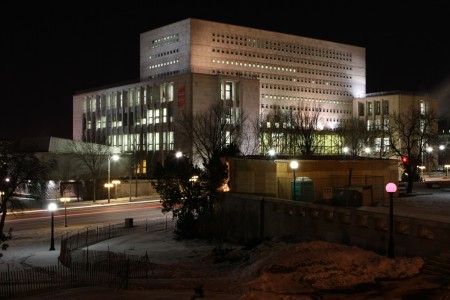
Perhaps more slowly than might have been expected, I am making the transition from almost exclusively owning comfortable, functional clothing of the sort that works well for climbing mountains to owning an increasing proportion of the kind of clothes I once owned in singular sets for the occasional wedding, funeral, or high table dinner.
I can’t say I object to the difference between wearing decent dress shoes and wearing $100 shoes I originally bought for a minimum wage position at Staples. Nor, living in Ottawa, can I deny the utility of long woolen coats for much of the year. I must, however, object to two intolerable aspects of formal clothing.
Impractical pockets
Firstly, I object to the pockets. There are too few of them, they are lacking in volume and ability to carry objects unobtrusively, and they are almost always too easy to lose things out of. In an ideal world, I should be able to carry all my day-to-day gear in the pockets of my jacket and trousers: keys, wallet, change, phone, iPod, headphones, point and shoot camera, liner gloves, earplugs (I like reading in silence), bus/security pass, miniature tripod, etc. In this ideal world, all of these things would also be in deep, zippered pockets that do not bulge horribly, when burdened with such necessary objects.
I have never found these desires to be satisfied by formal clothes. Keys seem absurdly capable of sawing through the pockets of dress trousers, leading to the loss of coins, phones, and other things. Jacket pockets are too few in number and too open and horizontal to be trusted. This is especially true when carrying electronic devices.
The silken noose
The other aspect of formal clothing to which I must object most forcefully is neckties. There are a number of reasons why Nassim Nicholas Taleb is a man worth taking seriously, and his hatred of neckties seems to me to be among the most convincing. The things serve no practical purpose whatsoever. Even worse, they inescapably cause frustration, annoyance, and discomfort – not least by obstructing both breathing and circulation.
I am truly glad to have been able to go many months now without wearing one, and devoutly wish to eventually find myself employed in such a place and manner that I will need to wear them only for funerals.
All the above being said, and in keeping with my earlier appeal for quality durable goods, those men who find themselves obliged to wear formal clothes often should subscribe to the blog Put This On, which is a good source of information and advice for those who have never been personally educated in such things.




